 Maybe that's the secret of satire: behaving like Schrödinger's cat: for every side that wants it dead, there's an opposite side that keeps it alive. But this is just a maybe, I barely know enough about humor, let alone physics, to know if the metaphor is actually applicable.
Maybe that's the secret of satire: behaving like Schrödinger's cat: for every side that wants it dead, there's an opposite side that keeps it alive. But this is just a maybe, I barely know enough about humor, let alone physics, to know if the metaphor is actually applicable.
I'll visit
01.04.2025 | by Pedro Goulão
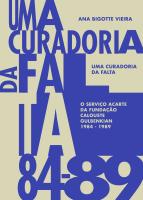 The questions raised by Ana Bigotte, on the contrary, are not formulated in the strict disciplinary framework of art history, but from the porous and open framework of theory and cultural studies, taking as fundamental references the work of authors such as Luís Trindade or Boaventura de Sousa Santos, whose object goes beyond the specific sphere of the artistic to approach culture as a social process with multiple branches. It does so by following the path opened by André Lepecki, who formulated interesting hypotheses about the construction of the Portuguese social "body" from the study of dance and performance. This is another distinctive specificity of the Portuguese case that contrasts with that of the neighboring country: the focus on the arts of the body and the so-called "living arts", such as theater, dance, and music.
The questions raised by Ana Bigotte, on the contrary, are not formulated in the strict disciplinary framework of art history, but from the porous and open framework of theory and cultural studies, taking as fundamental references the work of authors such as Luís Trindade or Boaventura de Sousa Santos, whose object goes beyond the specific sphere of the artistic to approach culture as a social process with multiple branches. It does so by following the path opened by André Lepecki, who formulated interesting hypotheses about the construction of the Portuguese social "body" from the study of dance and performance. This is another distinctive specificity of the Portuguese case that contrasts with that of the neighboring country: the focus on the arts of the body and the so-called "living arts", such as theater, dance, and music.
Stages
06.03.2023 | by Jesús Carrillo
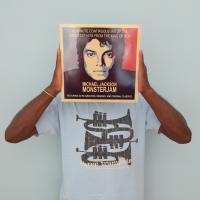 Balanced between various cultures, he has lived for 31 years in a more open and diverse Lisbon, an openness and diversity to which people like Lucky have contributed so much, from building the city to making the city dance.
This is a city of hard times, but also of encounters and possibilities with which he has grown up. In this text, we are led by the memories of Dj Lucky, between various sound tracks of quisange, semba, and afro blues, and multiple tracks on the floor, from Kinshasa to the Graça neighborhood, passing through Luanda, Cova da Moura, and Bairro Alto.
Balanced between various cultures, he has lived for 31 years in a more open and diverse Lisbon, an openness and diversity to which people like Lucky have contributed so much, from building the city to making the city dance.
This is a city of hard times, but also of encounters and possibilities with which he has grown up. In this text, we are led by the memories of Dj Lucky, between various sound tracks of quisange, semba, and afro blues, and multiple tracks on the floor, from Kinshasa to the Graça neighborhood, passing through Luanda, Cova da Moura, and Bairro Alto.
Face to face
15.11.2022 | by Marta Lança
 At its heart, MIXED is an exploration of racial and cultural identity. MIXED deals specifically with people that have mixed heritage, delving into the experiences of each subject that also echo his own. The series addresses the existential feeling of not fully belonging, while examining the cost of assimilation within society. The conversations focus especially on the contradiction of fitting in everywhere but nowhere at the same time and the resulting shoot is a collaboration that encompasses the themes considered.
At its heart, MIXED is an exploration of racial and cultural identity. MIXED deals specifically with people that have mixed heritage, delving into the experiences of each subject that also echo his own. The series addresses the existential feeling of not fully belonging, while examining the cost of assimilation within society. The conversations focus especially on the contradiction of fitting in everywhere but nowhere at the same time and the resulting shoot is a collaboration that encompasses the themes considered.
Stages
02.11.2022 | by Theo Gould
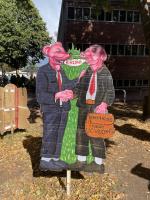 Always identified with audacity, - or, as seen in the international press, marked with “controversies” and even “scandals” - the event is among the largest and most important in the art world. The fifteenth edition that was recently carried out was not exempt from a “scandal”: the unanimity of the German press in its judgment of anti-Semitism.
Always identified with audacity, - or, as seen in the international press, marked with “controversies” and even “scandals” - the event is among the largest and most important in the art world. The fifteenth edition that was recently carried out was not exempt from a “scandal”: the unanimity of the German press in its judgment of anti-Semitism.
To read
02.11.2022 | by Cheong Kin Man
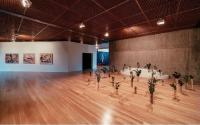 This exhibition presents around 60 works by 21 artists whose family origins lie in the former colonies in Africa. Born and raised in a post-colonial context, they are artists whose works have become unavoidable in European contemporary art, proposing a reflection on their heritage, their memories and their identities.
This exhibition presents around 60 works by 21 artists whose family origins lie in the former colonies in Africa. Born and raised in a post-colonial context, they are artists whose works have become unavoidable in European contemporary art, proposing a reflection on their heritage, their memories and their identities.
To read
01.11.2022 | by Marta Lança
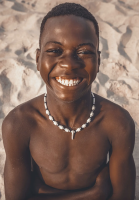 Angola is a nation still recovering from years of war and internal conflict, but photographer Kim Praise has his heart set on capturing the nation’s beauty, and the ways in which it’s evolving for the better. He tells writer Ify Obi about his favorite things about his home, and why he’s determined to paint the country—and its people—in a new light.
Angola is a nation still recovering from years of war and internal conflict, but photographer Kim Praise has his heart set on capturing the nation’s beauty, and the ways in which it’s evolving for the better. He tells writer Ify Obi about his favorite things about his home, and why he’s determined to paint the country—and its people—in a new light.
To read
12.10.2022 | by Ify Obi
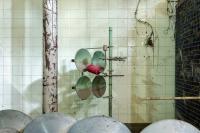 This series continues the investigations that singularise Chagas’ work, namely the attention to the experiential and affective relationships that subjects establish with everyday objects and spaces, countering fast rhythms of consumption through a decelerated gaze that closely scrutinises discarded materials, shapes and textures. However, the series simultaneously marks a kind of turning point, insofar as, unlike previous series carried out in various urban public spaces to the North and South, vaguely identified (the streets and beaches of Luanda, Venice, London and Newport, etc.), in this series, for the first time, the photographer focused on the indoors and outdoors of a specific architecture.
This series continues the investigations that singularise Chagas’ work, namely the attention to the experiential and affective relationships that subjects establish with everyday objects and spaces, countering fast rhythms of consumption through a decelerated gaze that closely scrutinises discarded materials, shapes and textures. However, the series simultaneously marks a kind of turning point, insofar as, unlike previous series carried out in various urban public spaces to the North and South, vaguely identified (the streets and beaches of Luanda, Venice, London and Newport, etc.), in this series, for the first time, the photographer focused on the indoors and outdoors of a specific architecture.
I'll visit
29.09.2022 | by Ana Balona de Oliveira
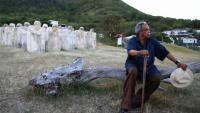 The focus of the Paris conference was on Glissant’s key concepts of relation, opacity, creolization, and disaffiliation. The Martinique-born writer and thinker was, of course, the first philosopher of post-filiation, by which I refer not only to his rebellious thesis of disaffiliation, in the sense of breaking with a genealogy and tradition of Western and non-Western philosophies concerned with binary opposition and contradiction, but also to him as a self-engendered philosopher. By this I mean that he re-created himself in order to surpass a pathological inextricability, which he associated with our contemporary human condition. Indeed, to say that Glissant is a post-filiation philosopher is mostly to recognize his role as a theorizer of the concept of relation, which moves beyond the oppositional discourse of the same and the other, operating instead with a new vision of difference as an assembler of the “dissimilars.”
The focus of the Paris conference was on Glissant’s key concepts of relation, opacity, creolization, and disaffiliation. The Martinique-born writer and thinker was, of course, the first philosopher of post-filiation, by which I refer not only to his rebellious thesis of disaffiliation, in the sense of breaking with a genealogy and tradition of Western and non-Western philosophies concerned with binary opposition and contradiction, but also to him as a self-engendered philosopher. By this I mean that he re-created himself in order to surpass a pathological inextricability, which he associated with our contemporary human condition. Indeed, to say that Glissant is a post-filiation philosopher is mostly to recognize his role as a theorizer of the concept of relation, which moves beyond the oppositional discourse of the same and the other, operating instead with a new vision of difference as an assembler of the “dissimilars.”
Mukanda
06.07.2022 | by Manthia Diawara
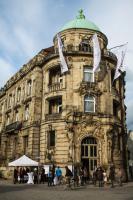 I think we always have the responsibility of looking into the ghosts of these colonial dreams and taking the ideas further. For example, we must rethink what are artwork features and what exactly defines them? Institutions change, in a slow and tedious way, but it happens. If we also think about the thesis and how it is configurated, how free can we be about the aesthetic part of it? Now we can offer “decolonize art studies” as a course. All the reconfigurations are a very long process to be achieved. A very important thing I would like to highlight is that where you are you must do your work and contribution. We should try to influence others with our work, inspiring them and trying to change what we know is wrong.
I think we always have the responsibility of looking into the ghosts of these colonial dreams and taking the ideas further. For example, we must rethink what are artwork features and what exactly defines them? Institutions change, in a slow and tedious way, but it happens. If we also think about the thesis and how it is configurated, how free can we be about the aesthetic part of it? Now we can offer “decolonize art studies” as a course. All the reconfigurations are a very long process to be achieved. A very important thing I would like to highlight is that where you are you must do your work and contribution. We should try to influence others with our work, inspiring them and trying to change what we know is wrong.
Face to face
18.03.2022 | by Arimilde Soares
 My work has always been focused round connection. I’ve always wanted to tell stories that even though you know the audience and the subject might be different I would want the audience to look at the photo, the subjects, and each detail and for them to be able to see something similar.
Most people that look at my most recent project “MIXED” and probably don’t necessarily think of themselves as mixed, however if we really look back at history and ethnicity it’s clear that we are all mixed, we just haven’t identified it . We all came from Africa and our genetic disposition is remarkably similar. The only differences we notice are as a result of our ancestors colonising different parts of our planet. Effectively we’re all mixed as racial purity is a complete myth.
My work has always been focused round connection. I’ve always wanted to tell stories that even though you know the audience and the subject might be different I would want the audience to look at the photo, the subjects, and each detail and for them to be able to see something similar.
Most people that look at my most recent project “MIXED” and probably don’t necessarily think of themselves as mixed, however if we really look back at history and ethnicity it’s clear that we are all mixed, we just haven’t identified it . We all came from Africa and our genetic disposition is remarkably similar. The only differences we notice are as a result of our ancestors colonising different parts of our planet. Effectively we’re all mixed as racial purity is a complete myth.
Face to face
28.02.2022 | by Alícia Gaspar
 The past five years have seen a flurry of activity around issues of restitution of African material heritage, resulting in new reports, new books and even, new returns. Along with this sudden surge in activity there has been an escalation in debate around these questions, where positions once thought to be entrenched, racist, conservative, and considered mainstream, seem to have shifted dramatically. In the frenzy, it can begin to feel as if things are changing and that society is progressing. But we’d do well to pause for deeper dives and more systematic remembering of what has come before.
The past five years have seen a flurry of activity around issues of restitution of African material heritage, resulting in new reports, new books and even, new returns. Along with this sudden surge in activity there has been an escalation in debate around these questions, where positions once thought to be entrenched, racist, conservative, and considered mainstream, seem to have shifted dramatically. In the frenzy, it can begin to feel as if things are changing and that society is progressing. But we’d do well to pause for deeper dives and more systematic remembering of what has come before.
To read
28.12.2021 | by
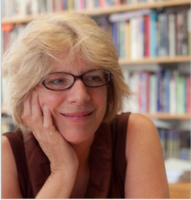 Today, I think that the field is challenged more than ever by the increased volatility of debates about what nations remember and consequentially forget. Monuments and memorials are being vandalized, torn down, officially removed. They can no longer be seen as simply part of an historical landscape. Much of this can be understood as battles over the historical narratives of monuments and their power, but it is also about tensions around who the nation mourns and who it sees or does not see as having a “grievable life” in Judith Butler’s term. So I see memory activism as a key site for the production of memory scholarship.
Today, I think that the field is challenged more than ever by the increased volatility of debates about what nations remember and consequentially forget. Monuments and memorials are being vandalized, torn down, officially removed. They can no longer be seen as simply part of an historical landscape. Much of this can be understood as battles over the historical narratives of monuments and their power, but it is also about tensions around who the nation mourns and who it sees or does not see as having a “grievable life” in Judith Butler’s term. So I see memory activism as a key site for the production of memory scholarship.
Face to face
25.10.2021 | by Inês Beleza Barreiros
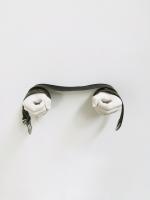 The exhibition Europa Oxalá is also the ideal time to deconstruct the colonial myth and the post-colonial melancholy designated as “African art”. Attributed to all artistic production that originates in the African continent, the expression has been used to differentiate it in a coarse way from all the art included in the compendiums and narratives of the universal history of art founded in the Western matrix. So-called African art was seen as an art without authorship, disconnected from the diversity of its production contexts, be they a country of North Africa, of the South or the east or west coast, be it the 14th or 20th century.
The exhibition Europa Oxalá is also the ideal time to deconstruct the colonial myth and the post-colonial melancholy designated as “African art”. Attributed to all artistic production that originates in the African continent, the expression has been used to differentiate it in a coarse way from all the art included in the compendiums and narratives of the universal history of art founded in the Western matrix. So-called African art was seen as an art without authorship, disconnected from the diversity of its production contexts, be they a country of North Africa, of the South or the east or west coast, be it the 14th or 20th century.
To read
18.10.2021 | by António Pinto Ribeiro
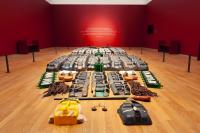 Rather than perceiving a national museum as a mere repository of cultural artefacts emblematic of either the elite’s values or its fetishization of those it excludes and rejects, the curators of Slavery have fully embraced their educational responsibility and their duty to actively contribute to cultural life in the present. All of which cannot prevent a feeling from remaining, that the fires of purgatory still rage on and much must yet be done to extinguish them.
Rather than perceiving a national museum as a mere repository of cultural artefacts emblematic of either the elite’s values or its fetishization of those it excludes and rejects, the curators of Slavery have fully embraced their educational responsibility and their duty to actively contribute to cultural life in the present. All of which cannot prevent a feeling from remaining, that the fires of purgatory still rage on and much must yet be done to extinguish them.
To read
15.08.2021 | by Paulo de Medeiros
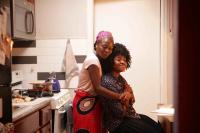 Angolans have made themselves in- and outside Angola, in conversation with the world. In the departures and arrivals, they carry with them the intangible and immaterial: intuition, faith, dance, and the sad and deep look of permanent uncertainty. But they also take with them the smile of resistance that can hide sadness and misfortunes. Perhaps at arrivals and departures there isn’t much to say. Perhaps all that is needed is to listen in silence and with a hug. A hug that knows how to listen.
Angolans have made themselves in- and outside Angola, in conversation with the world. In the departures and arrivals, they carry with them the intangible and immaterial: intuition, faith, dance, and the sad and deep look of permanent uncertainty. But they also take with them the smile of resistance that can hide sadness and misfortunes. Perhaps at arrivals and departures there isn’t much to say. Perhaps all that is needed is to listen in silence and with a hug. A hug that knows how to listen.
Afroscreen
21.12.2020 | by André Castro Soares
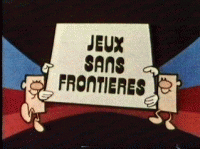 People are fighting today against growing poverty, against mutating forms of capitalist exploitation disguised and administered under the label of “austerity politics” in Europe and elsewhere. But to resist – r/esistere in a somewhat fictional etymology – also means to invent new modes of existence. To invent is not to create something out of nothing, but to aggregate forces that were already present – the invention in this sense is a recomposition of forces. MAGAZINE JSF#2
People are fighting today against growing poverty, against mutating forms of capitalist exploitation disguised and administered under the label of “austerity politics” in Europe and elsewhere. But to resist – r/esistere in a somewhat fictional etymology – also means to invent new modes of existence. To invent is not to create something out of nothing, but to aggregate forces that were already present – the invention in this sense is a recomposition of forces. MAGAZINE JSF#2
Games Without Borders
08.03.2016 | by Sandra Lang
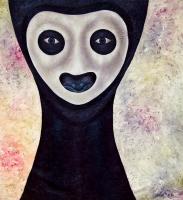 We know that racism is the social, cultural and political result of eurocentrism, which created the need to mark, distinguish and separate racialized ethnic groups of the human community, on the basis of skin color and/or culture. The main leverage associated with this dehumanizing enterprise of racialized ethnic groups was set on the power to construct myths that have always justified racism. In that regard, far from constituting a mere repository of unconscious and harmless prejudices, as it is often made believe, the analysis of the political situation, with the strengthening of fascism and the rise of the far right in Europe, demonstrates that racism remains at the junction of contemporary institutional political practices and the slavocratic, imperial and colonial ideologies.
We know that racism is the social, cultural and political result of eurocentrism, which created the need to mark, distinguish and separate racialized ethnic groups of the human community, on the basis of skin color and/or culture. The main leverage associated with this dehumanizing enterprise of racialized ethnic groups was set on the power to construct myths that have always justified racism. In that regard, far from constituting a mere repository of unconscious and harmless prejudices, as it is often made believe, the analysis of the political situation, with the strengthening of fascism and the rise of the far right in Europe, demonstrates that racism remains at the junction of contemporary institutional political practices and the slavocratic, imperial and colonial ideologies.
To read
29.12.2014 | by Mamadou Ba
 The most interesting things happen often completely unexpected. On a trip to Nairobi, being busy with the Solo and Duo Festival of Dance Forum Nairobi I came along the dynamics of inspiring artists in the GoDown Art Centre located in the industrial area of town. There I had the coincidental chance to meet the dancer Irene Karanja in a daily rehearsal program for a dance show choreographed by Fernando Anuang´a. Her artist name is short: Renée.
The most interesting things happen often completely unexpected. On a trip to Nairobi, being busy with the Solo and Duo Festival of Dance Forum Nairobi I came along the dynamics of inspiring artists in the GoDown Art Centre located in the industrial area of town. There I had the coincidental chance to meet the dancer Irene Karanja in a daily rehearsal program for a dance show choreographed by Fernando Anuang´a. Her artist name is short: Renée.
Stages
28.12.2011 | by Grit Köppen
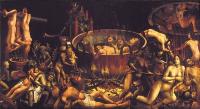 The central trope of the various efforts to define moral economy has been an opposition between, on the one hand, the maximizing individual and ever-expanding market of classical political economy, and on the other a community governed by norms of collective survival and believing in a zero-sum universe: i.e. a world where all profit is gained at someone else's loss. The communal/zero-sum side of this equation is broadly consistent with African beliefs identifying capitalism and witchcraft as the dangerous appropriation of limited reproductive resources by selfish individuals.
The central trope of the various efforts to define moral economy has been an opposition between, on the one hand, the maximizing individual and ever-expanding market of classical political economy, and on the other a community governed by norms of collective survival and believing in a zero-sum universe: i.e. a world where all profit is gained at someone else's loss. The communal/zero-sum side of this equation is broadly consistent with African beliefs identifying capitalism and witchcraft as the dangerous appropriation of limited reproductive resources by selfish individuals.
To read
21.06.2011 | by Ralph A. Austen
 Maybe that's the secret of satire: behaving like Schrödinger's cat: for every side that wants it dead, there's an opposite side that keeps it alive. But this is just a maybe, I barely know enough about humor, let alone physics, to know if the metaphor is actually applicable.
Maybe that's the secret of satire: behaving like Schrödinger's cat: for every side that wants it dead, there's an opposite side that keeps it alive. But this is just a maybe, I barely know enough about humor, let alone physics, to know if the metaphor is actually applicable.  The questions raised by Ana Bigotte, on the contrary, are not formulated in the strict disciplinary framework of art history, but from the porous and open framework of theory and cultural studies, taking as fundamental references the work of authors such as Luís Trindade or Boaventura de Sousa Santos, whose object goes beyond the specific sphere of the artistic to approach culture as a social process with multiple branches. It does so by following the path opened by André Lepecki, who formulated interesting hypotheses about the construction of the Portuguese social "body" from the study of dance and performance. This is another distinctive specificity of the Portuguese case that contrasts with that of the neighboring country: the focus on the arts of the body and the so-called "living arts", such as theater, dance, and music.
The questions raised by Ana Bigotte, on the contrary, are not formulated in the strict disciplinary framework of art history, but from the porous and open framework of theory and cultural studies, taking as fundamental references the work of authors such as Luís Trindade or Boaventura de Sousa Santos, whose object goes beyond the specific sphere of the artistic to approach culture as a social process with multiple branches. It does so by following the path opened by André Lepecki, who formulated interesting hypotheses about the construction of the Portuguese social "body" from the study of dance and performance. This is another distinctive specificity of the Portuguese case that contrasts with that of the neighboring country: the focus on the arts of the body and the so-called "living arts", such as theater, dance, and music.  Balanced between various cultures, he has lived for 31 years in a more open and diverse Lisbon, an openness and diversity to which people like Lucky have contributed so much, from building the city to making the city dance.
This is a city of hard times, but also of encounters and possibilities with which he has grown up. In this text, we are led by the memories of Dj Lucky, between various sound tracks of quisange, semba, and afro blues, and multiple tracks on the floor, from Kinshasa to the Graça neighborhood, passing through Luanda, Cova da Moura, and Bairro Alto.
Balanced between various cultures, he has lived for 31 years in a more open and diverse Lisbon, an openness and diversity to which people like Lucky have contributed so much, from building the city to making the city dance.
This is a city of hard times, but also of encounters and possibilities with which he has grown up. In this text, we are led by the memories of Dj Lucky, between various sound tracks of quisange, semba, and afro blues, and multiple tracks on the floor, from Kinshasa to the Graça neighborhood, passing through Luanda, Cova da Moura, and Bairro Alto.  At its heart, MIXED is an exploration of racial and cultural identity. MIXED deals specifically with people that have mixed heritage, delving into the experiences of each subject that also echo his own. The series addresses the existential feeling of not fully belonging, while examining the cost of assimilation within society. The conversations focus especially on the contradiction of fitting in everywhere but nowhere at the same time and the resulting shoot is a collaboration that encompasses the themes considered.
At its heart, MIXED is an exploration of racial and cultural identity. MIXED deals specifically with people that have mixed heritage, delving into the experiences of each subject that also echo his own. The series addresses the existential feeling of not fully belonging, while examining the cost of assimilation within society. The conversations focus especially on the contradiction of fitting in everywhere but nowhere at the same time and the resulting shoot is a collaboration that encompasses the themes considered.  Always identified with audacity, - or, as seen in the international press, marked with “controversies” and even “scandals” - the event is among the largest and most important in the art world. The fifteenth edition that was recently carried out was not exempt from a “scandal”: the unanimity of the German press in its judgment of anti-Semitism.
Always identified with audacity, - or, as seen in the international press, marked with “controversies” and even “scandals” - the event is among the largest and most important in the art world. The fifteenth edition that was recently carried out was not exempt from a “scandal”: the unanimity of the German press in its judgment of anti-Semitism.  This exhibition presents around 60 works by 21 artists whose family origins lie in the former colonies in Africa. Born and raised in a post-colonial context, they are artists whose works have become unavoidable in European contemporary art, proposing a reflection on their heritage, their memories and their identities.
This exhibition presents around 60 works by 21 artists whose family origins lie in the former colonies in Africa. Born and raised in a post-colonial context, they are artists whose works have become unavoidable in European contemporary art, proposing a reflection on their heritage, their memories and their identities.  Angola is a nation still recovering from years of war and internal conflict, but photographer Kim Praise has his heart set on capturing the nation’s beauty, and the ways in which it’s evolving for the better. He tells writer Ify Obi about his favorite things about his home, and why he’s determined to paint the country—and its people—in a new light.
Angola is a nation still recovering from years of war and internal conflict, but photographer Kim Praise has his heart set on capturing the nation’s beauty, and the ways in which it’s evolving for the better. He tells writer Ify Obi about his favorite things about his home, and why he’s determined to paint the country—and its people—in a new light.  This series continues the investigations that singularise Chagas’ work, namely the attention to the experiential and affective relationships that subjects establish with everyday objects and spaces, countering fast rhythms of consumption through a decelerated gaze that closely scrutinises discarded materials, shapes and textures. However, the series simultaneously marks a kind of turning point, insofar as, unlike previous series carried out in various urban public spaces to the North and South, vaguely identified (the streets and beaches of Luanda, Venice, London and Newport, etc.), in this series, for the first time, the photographer focused on the indoors and outdoors of a specific architecture.
This series continues the investigations that singularise Chagas’ work, namely the attention to the experiential and affective relationships that subjects establish with everyday objects and spaces, countering fast rhythms of consumption through a decelerated gaze that closely scrutinises discarded materials, shapes and textures. However, the series simultaneously marks a kind of turning point, insofar as, unlike previous series carried out in various urban public spaces to the North and South, vaguely identified (the streets and beaches of Luanda, Venice, London and Newport, etc.), in this series, for the first time, the photographer focused on the indoors and outdoors of a specific architecture.  The focus of the Paris conference was on Glissant’s key concepts of relation, opacity, creolization, and disaffiliation. The Martinique-born writer and thinker was, of course, the first philosopher of post-filiation, by which I refer not only to his rebellious thesis of disaffiliation, in the sense of breaking with a genealogy and tradition of Western and non-Western philosophies concerned with binary opposition and contradiction, but also to him as a self-engendered philosopher. By this I mean that he re-created himself in order to surpass a pathological inextricability, which he associated with our contemporary human condition. Indeed, to say that Glissant is a post-filiation philosopher is mostly to recognize his role as a theorizer of the concept of relation, which moves beyond the oppositional discourse of the same and the other, operating instead with a new vision of difference as an assembler of the “dissimilars.”
The focus of the Paris conference was on Glissant’s key concepts of relation, opacity, creolization, and disaffiliation. The Martinique-born writer and thinker was, of course, the first philosopher of post-filiation, by which I refer not only to his rebellious thesis of disaffiliation, in the sense of breaking with a genealogy and tradition of Western and non-Western philosophies concerned with binary opposition and contradiction, but also to him as a self-engendered philosopher. By this I mean that he re-created himself in order to surpass a pathological inextricability, which he associated with our contemporary human condition. Indeed, to say that Glissant is a post-filiation philosopher is mostly to recognize his role as a theorizer of the concept of relation, which moves beyond the oppositional discourse of the same and the other, operating instead with a new vision of difference as an assembler of the “dissimilars.”  I think we always have the responsibility of looking into the ghosts of these colonial dreams and taking the ideas further. For example, we must rethink what are artwork features and what exactly defines them? Institutions change, in a slow and tedious way, but it happens. If we also think about the thesis and how it is configurated, how free can we be about the aesthetic part of it? Now we can offer “decolonize art studies” as a course. All the reconfigurations are a very long process to be achieved. A very important thing I would like to highlight is that where you are you must do your work and contribution. We should try to influence others with our work, inspiring them and trying to change what we know is wrong.
I think we always have the responsibility of looking into the ghosts of these colonial dreams and taking the ideas further. For example, we must rethink what are artwork features and what exactly defines them? Institutions change, in a slow and tedious way, but it happens. If we also think about the thesis and how it is configurated, how free can we be about the aesthetic part of it? Now we can offer “decolonize art studies” as a course. All the reconfigurations are a very long process to be achieved. A very important thing I would like to highlight is that where you are you must do your work and contribution. We should try to influence others with our work, inspiring them and trying to change what we know is wrong.  My work has always been focused round connection. I’ve always wanted to tell stories that even though you know the audience and the subject might be different I would want the audience to look at the photo, the subjects, and each detail and for them to be able to see something similar.
Most people that look at my most recent project “MIXED” and probably don’t necessarily think of themselves as mixed, however if we really look back at history and ethnicity it’s clear that we are all mixed, we just haven’t identified it . We all came from Africa and our genetic disposition is remarkably similar. The only differences we notice are as a result of our ancestors colonising different parts of our planet. Effectively we’re all mixed as racial purity is a complete myth.
My work has always been focused round connection. I’ve always wanted to tell stories that even though you know the audience and the subject might be different I would want the audience to look at the photo, the subjects, and each detail and for them to be able to see something similar.
Most people that look at my most recent project “MIXED” and probably don’t necessarily think of themselves as mixed, however if we really look back at history and ethnicity it’s clear that we are all mixed, we just haven’t identified it . We all came from Africa and our genetic disposition is remarkably similar. The only differences we notice are as a result of our ancestors colonising different parts of our planet. Effectively we’re all mixed as racial purity is a complete myth.  The past five years have seen a flurry of activity around issues of restitution of African material heritage, resulting in new reports, new books and even, new returns. Along with this sudden surge in activity there has been an escalation in debate around these questions, where positions once thought to be entrenched, racist, conservative, and considered mainstream, seem to have shifted dramatically. In the frenzy, it can begin to feel as if things are changing and that society is progressing. But we’d do well to pause for deeper dives and more systematic remembering of what has come before.
The past five years have seen a flurry of activity around issues of restitution of African material heritage, resulting in new reports, new books and even, new returns. Along with this sudden surge in activity there has been an escalation in debate around these questions, where positions once thought to be entrenched, racist, conservative, and considered mainstream, seem to have shifted dramatically. In the frenzy, it can begin to feel as if things are changing and that society is progressing. But we’d do well to pause for deeper dives and more systematic remembering of what has come before.  Today, I think that the field is challenged more than ever by the increased volatility of debates about what nations remember and consequentially forget. Monuments and memorials are being vandalized, torn down, officially removed. They can no longer be seen as simply part of an historical landscape. Much of this can be understood as battles over the historical narratives of monuments and their power, but it is also about tensions around who the nation mourns and who it sees or does not see as having a “grievable life” in Judith Butler’s term. So I see memory activism as a key site for the production of memory scholarship.
Today, I think that the field is challenged more than ever by the increased volatility of debates about what nations remember and consequentially forget. Monuments and memorials are being vandalized, torn down, officially removed. They can no longer be seen as simply part of an historical landscape. Much of this can be understood as battles over the historical narratives of monuments and their power, but it is also about tensions around who the nation mourns and who it sees or does not see as having a “grievable life” in Judith Butler’s term. So I see memory activism as a key site for the production of memory scholarship.  The exhibition Europa Oxalá is also the ideal time to deconstruct the colonial myth and the post-colonial melancholy designated as “African art”. Attributed to all artistic production that originates in the African continent, the expression has been used to differentiate it in a coarse way from all the art included in the compendiums and narratives of the universal history of art founded in the Western matrix. So-called African art was seen as an art without authorship, disconnected from the diversity of its production contexts, be they a country of North Africa, of the South or the east or west coast, be it the 14th or 20th century.
The exhibition Europa Oxalá is also the ideal time to deconstruct the colonial myth and the post-colonial melancholy designated as “African art”. Attributed to all artistic production that originates in the African continent, the expression has been used to differentiate it in a coarse way from all the art included in the compendiums and narratives of the universal history of art founded in the Western matrix. So-called African art was seen as an art without authorship, disconnected from the diversity of its production contexts, be they a country of North Africa, of the South or the east or west coast, be it the 14th or 20th century.  Rather than perceiving a national museum as a mere repository of cultural artefacts emblematic of either the elite’s values or its fetishization of those it excludes and rejects, the curators of Slavery have fully embraced their educational responsibility and their duty to actively contribute to cultural life in the present. All of which cannot prevent a feeling from remaining, that the fires of purgatory still rage on and much must yet be done to extinguish them.
Rather than perceiving a national museum as a mere repository of cultural artefacts emblematic of either the elite’s values or its fetishization of those it excludes and rejects, the curators of Slavery have fully embraced their educational responsibility and their duty to actively contribute to cultural life in the present. All of which cannot prevent a feeling from remaining, that the fires of purgatory still rage on and much must yet be done to extinguish them.  Angolans have made themselves in- and outside Angola, in conversation with the world. In the departures and arrivals, they carry with them the intangible and immaterial: intuition, faith, dance, and the sad and deep look of permanent uncertainty. But they also take with them the smile of resistance that can hide sadness and misfortunes. Perhaps at arrivals and departures there isn’t much to say. Perhaps all that is needed is to listen in silence and with a hug. A hug that knows how to listen.
Angolans have made themselves in- and outside Angola, in conversation with the world. In the departures and arrivals, they carry with them the intangible and immaterial: intuition, faith, dance, and the sad and deep look of permanent uncertainty. But they also take with them the smile of resistance that can hide sadness and misfortunes. Perhaps at arrivals and departures there isn’t much to say. Perhaps all that is needed is to listen in silence and with a hug. A hug that knows how to listen.  People are fighting today against growing poverty, against mutating forms of capitalist exploitation disguised and administered under the label of “austerity politics” in Europe and elsewhere. But to resist – r/esistere in a somewhat fictional etymology – also means to invent new modes of existence. To invent is not to create something out of nothing, but to aggregate forces that were already present – the invention in this sense is a recomposition of forces. MAGAZINE JSF#2
People are fighting today against growing poverty, against mutating forms of capitalist exploitation disguised and administered under the label of “austerity politics” in Europe and elsewhere. But to resist – r/esistere in a somewhat fictional etymology – also means to invent new modes of existence. To invent is not to create something out of nothing, but to aggregate forces that were already present – the invention in this sense is a recomposition of forces. MAGAZINE JSF#2  We know that racism is the social, cultural and political result of eurocentrism, which created the need to mark, distinguish and separate racialized ethnic groups of the human community, on the basis of skin color and/or culture. The main leverage associated with this dehumanizing enterprise of racialized ethnic groups was set on the power to construct myths that have always justified racism. In that regard, far from constituting a mere repository of unconscious and harmless prejudices, as it is often made believe, the analysis of the political situation, with the strengthening of fascism and the rise of the far right in Europe, demonstrates that racism remains at the junction of contemporary institutional political practices and the slavocratic, imperial and colonial ideologies.
We know that racism is the social, cultural and political result of eurocentrism, which created the need to mark, distinguish and separate racialized ethnic groups of the human community, on the basis of skin color and/or culture. The main leverage associated with this dehumanizing enterprise of racialized ethnic groups was set on the power to construct myths that have always justified racism. In that regard, far from constituting a mere repository of unconscious and harmless prejudices, as it is often made believe, the analysis of the political situation, with the strengthening of fascism and the rise of the far right in Europe, demonstrates that racism remains at the junction of contemporary institutional political practices and the slavocratic, imperial and colonial ideologies.  The most interesting things happen often completely unexpected. On a trip to Nairobi, being busy with the Solo and Duo Festival of Dance Forum Nairobi I came along the dynamics of inspiring artists in the GoDown Art Centre located in the industrial area of town. There I had the coincidental chance to meet the dancer Irene Karanja in a daily rehearsal program for a dance show choreographed by Fernando Anuang´a. Her artist name is short: Renée.
The most interesting things happen often completely unexpected. On a trip to Nairobi, being busy with the Solo and Duo Festival of Dance Forum Nairobi I came along the dynamics of inspiring artists in the GoDown Art Centre located in the industrial area of town. There I had the coincidental chance to meet the dancer Irene Karanja in a daily rehearsal program for a dance show choreographed by Fernando Anuang´a. Her artist name is short: Renée.  The central trope of the various efforts to define moral economy has been an opposition between, on the one hand, the maximizing individual and ever-expanding market of classical political economy, and on the other a community governed by norms of collective survival and believing in a zero-sum universe: i.e. a world where all profit is gained at someone else's loss. The communal/zero-sum side of this equation is broadly consistent with African beliefs identifying capitalism and witchcraft as the dangerous appropriation of limited reproductive resources by selfish individuals.
The central trope of the various efforts to define moral economy has been an opposition between, on the one hand, the maximizing individual and ever-expanding market of classical political economy, and on the other a community governed by norms of collective survival and believing in a zero-sum universe: i.e. a world where all profit is gained at someone else's loss. The communal/zero-sum side of this equation is broadly consistent with African beliefs identifying capitalism and witchcraft as the dangerous appropriation of limited reproductive resources by selfish individuals. 